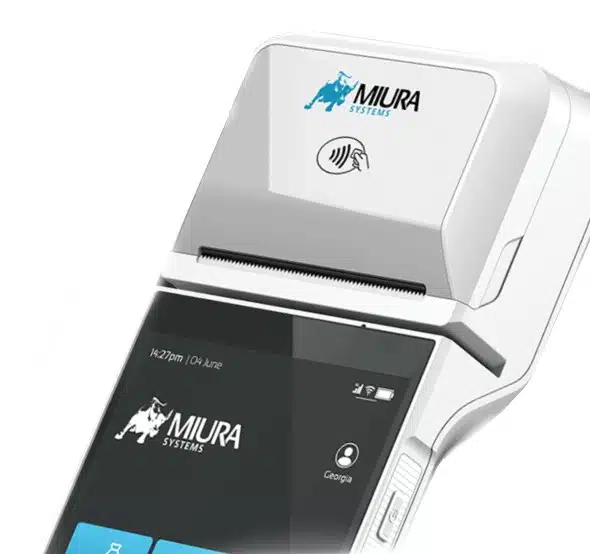The United Kingdom-based point-of-sale technology specialist Miura Systems has launched its latest payment device, an Android-based terminal called the Miura Android Smart POS, or MASP. It’s the latest payment-acceptance device aimed at independent sales organizations and other third-party resellers to take advantage of the open-source capabilities of the Android operating system, which is said to simplify application development and security.
The new device, which Miura says has been developed for high-volume scenarios and for day-to-day business functions beyond payments, weighs slightly less than a pound with a paper roll and includes a five-and-a-half-inch touchscreen, built-in printer, and rear-facing camera. Miura says the device also offers access to real-time transaction data to support merchants’ business decisions.
“We are [helping] businesses open new horizons by implementing an enriched POS and payments solution focused on delivering business critical services alongside day-to-day payments,” Fred Nelson, vice president of North American channel development at Miura, said in a statement.

Information on pricing was not immediately available, though the company says the new device carries what it calls “an extremely competitive price point.”
Miura, founded 15 years ago, says it has an installed base of better than 3 million POS devices in 30 countries. A relatively new market for Miura, North America is also one of the most competitive and highly developed in the world for POS technology. The introduction of the MASP device, however, is not its first effort to penetrate the payments market in the U.S. and Canada. It announced a major expansion in this region in 2021 and again last summer with a new line of devices, a drive to recruit marketing and support personnel, and the introduction of a new payment application.
The global pandemic, which led consumers to favor digital payments over paper money and coins, served to lend momentum to POS installations for all brands worldwide. The installed base of payment terminals globally reached a record high of 88 million in 2021, according to the latest figures from RBR, a London-based research firm.




